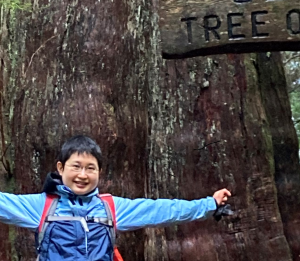Jeff Sayer
|
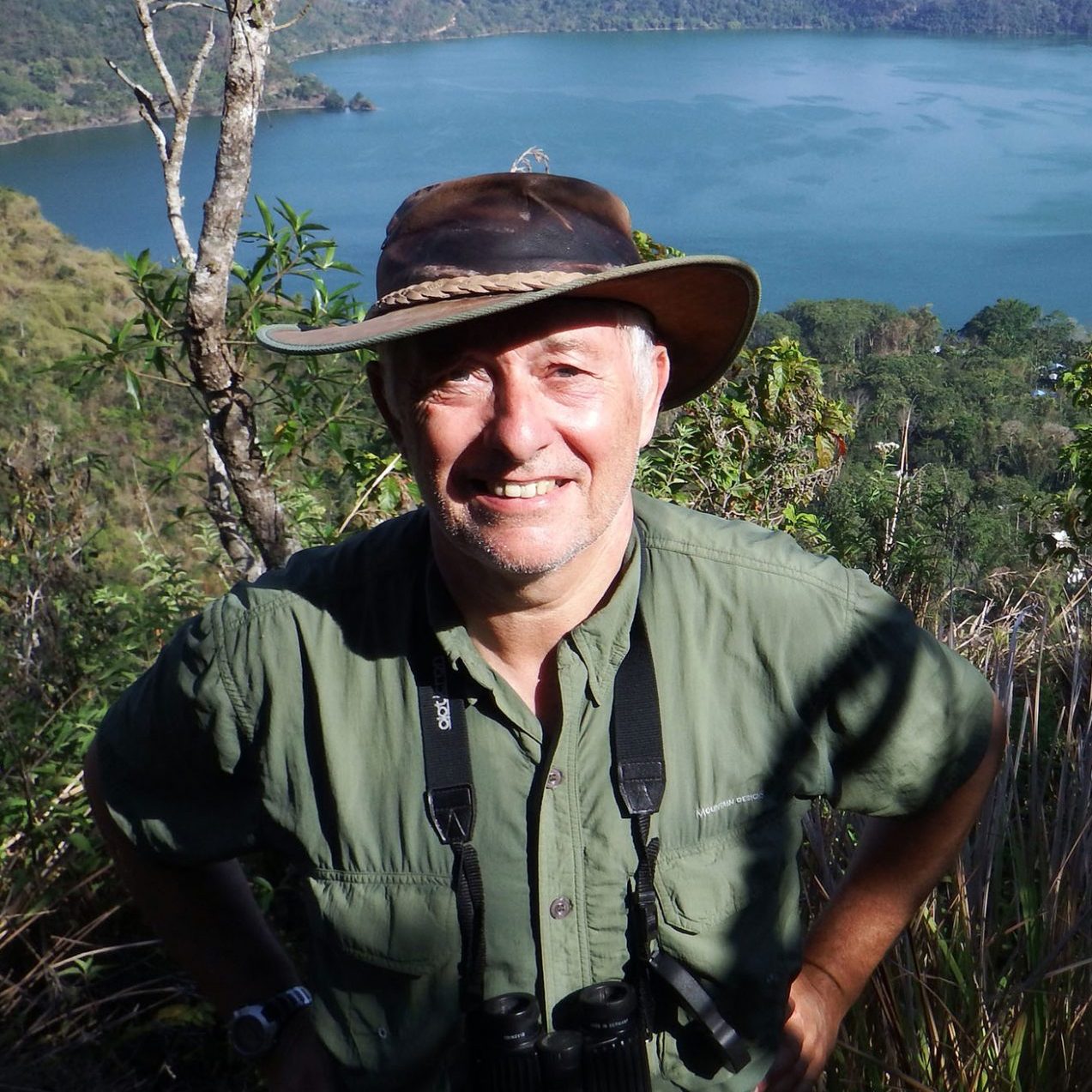 |
Intu BoedhihartonoAgni Klintuni Boedhihartono has a multidisciplinary background (Anthropology, Fine Arts, Cinematography, and Natural Sciences). She has a Doctorate in Ethnology & Visual Anthropology from the University of Paris 7, France. She went to the Ecole National Superieure des Beaux-Arts and the University of Paris 7 in France to pursue her passion in arts, culture, people, and sciences. Intu subsequently worked for the United Nations Environment Program and the International Union for the Conservation of Nature in Switzerland. Intu joins UBC after spending eight years running a master’s program in Development Practice at James Cook University in tropical northern Australia. Intu has worked with multidisciplinary teams in remote locations in tropical landscapes and seascapes in Asia, Africa, and Latin America. Intu has focussed on issues with indigenous people and local communities, particularly on the importance of their traditional knowledge and wise practices in natural resources management and the conservation of their cultural diversity. Intu’s research has sought to enable forest-dependent people, coastal communities, and indigenous groups to achieve a balance between conservation and social, cultural, and economic development. Intu uses visual techniques to explore landscape scenarios and other participatory methods to maximize the involvement of diverse stakeholder groups. Her goal is to have an influence on global efforts to support indigenous people and local communities to improve their livelihoods whilst retaining their identity, cultural diversity, traditional knowledge, environment, and natural assets. |
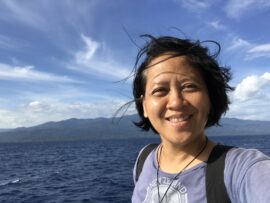 |
Chris GastonChris Gaston is an Associate Professor at the Faculty of Forestry at the University of British Columbia and past manager of the Markets & Economics Group at FPInnovations in Vancouver, British Columbia. He has degrees in Forestry Economics (Ph.D.) and Agricultural Economics & Business (B.Sc., M.Sc.) from the University of British Columbia and the University of Guelph, Ontario, Canada. Chris has worked in both academia (teaching and research) and industry (management, consulting, research), with over 35 years’ experience in agribusiness and forestry. His research and consulting have focused on price-risk management strategies, market research, econometrics, and trade modeling. Recent research efforts have included value chain optimization and product development for Canada, the United States, Japan, China, and Europe, including for Aboriginal communities. Chris has co-supervised over twenty M.Sc. and Ph.D. students, as well as managing a national staff of markets and economics researchers for nearly two decades. He is also past Chairperson and active member of the “Team of Specialists for Forest Products Marketing” for the United Nations Economic Commission for Europe. He has published widely and has spoken at conferences throughout the world. |
 |
James Langston
James is a landscape transition scientist at CSIRO Environment. In addition to his work on peatland restoration in Indonesia, James collaborates with the VFL lab in Indonesia, Cameroon, and Canada to guide sustainability transitions and embedded science. Before joining CSIRO in Australia, James worked at UBC as the Master of International Forestry coordinator. He is now an Adjunct Professor with UBC Forestry. About James' research: I work with societal partners to seek how science can best be deployed to achieve equitable and sustainable development in contested landscapes. I call this a practical political ecology approach. Empowering local agency in the face of macro-level political and economic forces is essential for an equitable world. I strive to be an agent for more inclusive sciences to reconcile different ways of knowing so that the narratives that drive change are less clustered and more integrated. |
 |
Dwi Amalia SariDwi is currently completing her PhD at James Cook University, Cairns, Australia. Prior to commencing her PhD, Dwi worked at the Supreme Audit Board of Indonesia. Dwi is passionate about sustainable development and seeks to identify and implement improvements in natural resource governance in Indonesia. In her PhD, Dwi assessed multi-sectoral governance natural resources in three landscapes in Indonesia. She used professionally accepted auditing standards as well as Actor Network Analysis and Multi Criteria Analysis (V.I.S.A) as tools to analyse the performance, effectiveness, and efficiency of governance. Dwi’s research findings suggest that landscapes in Indonesia have distinct social, political, financial, and ecological aspects that should influence governance decisions. Her results show that strong leadership, multi-sectoral collaboration to manage trade-offs, and a combination of top-down and bottom-up approaches is needed to steer sustainable development in Indonesia. Dwi is currently working with government bodies in Indonesia to develop ways of implementing improvements at the regional and national scale. |
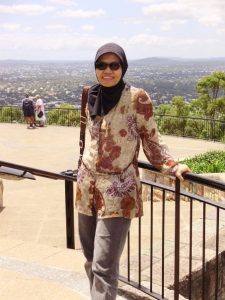 |
Rumi NaitoRumi is a Ph.D. student in the Institute for Resources, Environment and Sustainability (IRES) at the University of British Columbia (UBC), focusing on behavioral psychology applied to conservation and natural resource management in tropical landscapes. She is also a Liu Scholar at the Liu Institute for Global Issues and a UBC’s Four Year Doctoral Fellowship recipient. Drawing on insights from cognitive psychology, her doctoral studies will investigate: 1) how land-users perceive conservation challenges differently and make subsequent land-use decisions; and 2) what interventions might facilitate desired behavioral change for sustainability. Prior to starting her doctoral studies at UBC, Rumi worked with an Indonesia-based consulting firm, Starling Resources, as a senior project manager on a number of projects concerning collaborative land-use planning, forestry policies, reducing emissions from deforestation and forest degradation (REDD+), ecosystem restoration, sustainable peatland management, agroecology, and community-based economic development. She holds a Master's degree in International Affairs from the School of International and Public Affairs, Columbia University in New York, with a focus on Environmental Policy Studies for Southeast Asia. In her spare time, she enjoys training capoeira, traveling, hiking, and pottery. |
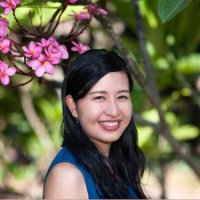 |
Chris MargulesChris Margules is Adjunct Professor in the College of Science and Engineering at James Cook University, Australia and Adjunct professor in the Faculty of Mathematics and natural Sciences, University of Indonesia. His current interest focuses on integrating conservation and development at the landscape or seascape scale. Previously, he designed and implemented a large-scale experiment on the ecological effects of habitat fragmentation and played a key role in discovering and then implementing the idea of complementary in systematic conservation planning. Chris was a research scientist and later research manager at the Commonwealth Scientific and Industrial Research Organisation (CSIRO) for 32 years, where he led programs on landscape management and sustainable development in the tropics. He joined the NGO Conservation International in 2006 and later become Senior Vice-President and leader of the Asia Pacific Division. He has worked in a number of Asian countries, the Pacific region and southern Africa as well as Australia. He was a fellow of the Wissenschaftskolleg zu Berlin in 1994. He was a web of science highly cited author for the 20 years 1982 to 2002. He received order of Australia honors in the General Division (AM) for services to science in 2005. |
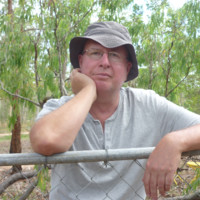 |
Emmanuel AcheampongEmmanuel Acheampong has BSc. (Hons) and MPhil degrees in development planning at Kwame Nkrumah University of Science and Technology, Kumasi, Ghana, and Master of Philosophy (Agriculture, Environment, and Related Studies) at James Cook University, Australia. He is currently a PhD researcher at James Cook University, Australia. Since 2012, Emmanuel has been researching sustainable development issues in Ghana and other developing countries and has acquired significant experience in community engagement and environmental conservation over the years in Ghana. Emmanuel’s research in Ghana has been focusing on forest restoration and management through community participation, and livelihood improvement of farmers in forest fringe communities. Through Emmanuel’s innovative ideas, he was able to secure a 50 ha degraded forestland from the Forestry Commission of Ghana to assess the feasibility of engaging local farmers to restore the degraded land and examine the benefits thereof using the landscape approach. Since 2017, Emmanuel has been able to engage about 30 farmers in forest fringe communities of Ghana to restore about 20 ha of the degraded forest reserve through which the livelihoods of the farmers have been significantly improved. Details of the project can be found at www.ecomafghana.org. Emmanuel desires to continue his engagement with smallholders in forest fringe Ghana in forest landscape restoration programs through which rural livelihoods are developed. Emmanuel believes that sustainable forest conservation, restoration, and management should always have the active participation of the local people because they are the most direct stakeholders of the forests and indigenous knowledge cannot be neglected. Assessing the feasibility of introducing non-timber forest products in planted forests for the benefit of indigenous people is Emmanuel’s next plan of action. |
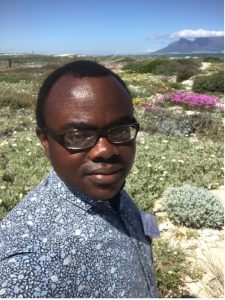 |
Agus KastanyaAgus Kastanya is a Professor at the Department of Forestry, Faculty of Agriculture, at Pattimura University, Ambon, Indonesia. Agus has many years of experience working in sustainable forest management in Indonesia. Based in Ambon, Maluku, he works closely with government agencies, NGOs, and communities to develop forest management programs on small islands, taking a landscape - seascape approach. Agus coordinates several research projects, facilitating multi-stakeholder partnerships between local and international organisations, including UNPATTI and UBC. More information Agus' research, teaching and recent achievements can be found here. |
 |
Jatna SupriatnaProfessor Jatna Supriatna is the current Chairman of Research Center for Climate Change University of Indonesia. He is based at the Department of Biology, Faculty of Mathematics and Science (Conservation Biology), University of Indonesia. Jatna is an active member of several international organizations, including IUCN-World Conservation of Protected Area, IUCN-Specialist Survival Commision-Primate Specialist Group, International Primatological Society, Society for Conservation Biologist and many others. Jatna has worked extensively to support biodiversity conservation in Indonesia. Among his many contributions to conservation science are the discoveries of new primates in Indonesia such as Tarsius tumpara (new species found in Siau Island with his friends) and Macaca togianus (in Togean island) and the hybrid animals in Sulawesi. A full profile can be found here. |
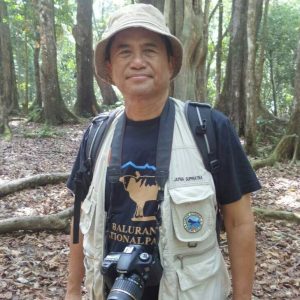 |
| Lalu Adi Gunawan (2015) Adapting to Climate Change: Perspectives from Rural communities in Lombok, Eastern Indonesia. PhD completed at James Cook University, Australia |
| Mercy Rampengan (2015) Impacts of Multiple Hazards on Small Island Communities - Perspectives from North Sulawesi, Indonesia. PhD completed at James Cook University, Australia |
| Lingfei Weng (2015) Extractive industries, Agriculture and Development Corridors in Africa. PhD completed at James Cook University, Australia |
| Adinda Herdianti (2022) Business ecosystems to provide incentives and opportunities for sustainable and resilient livelihoods in forest landscapes. MSc completed at The University of British Columbia, Canada |
| Emilio Valeri (2022) Challenges of participation in local forest initiatives. MSc completed at The University of British Columbia, Canada |




